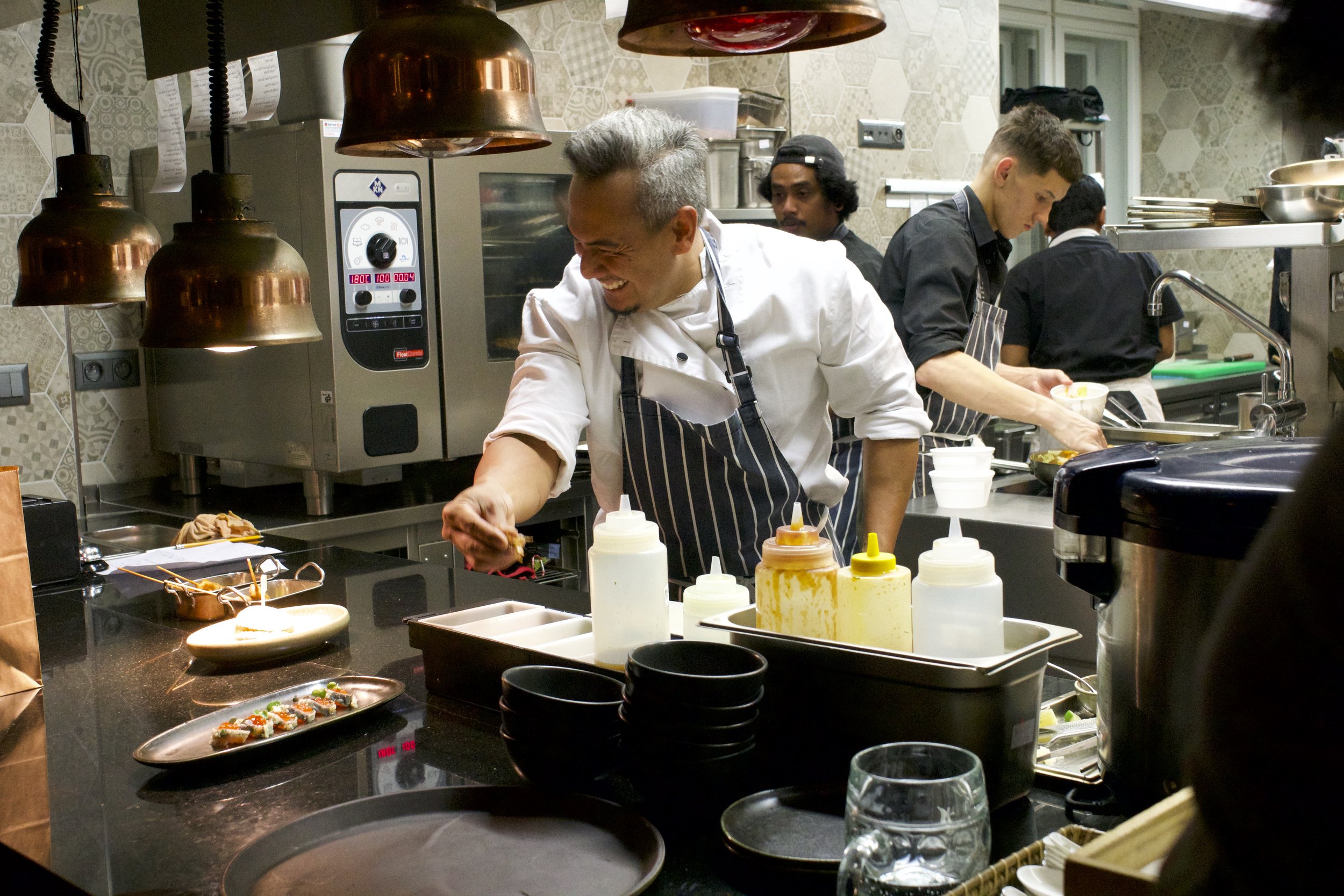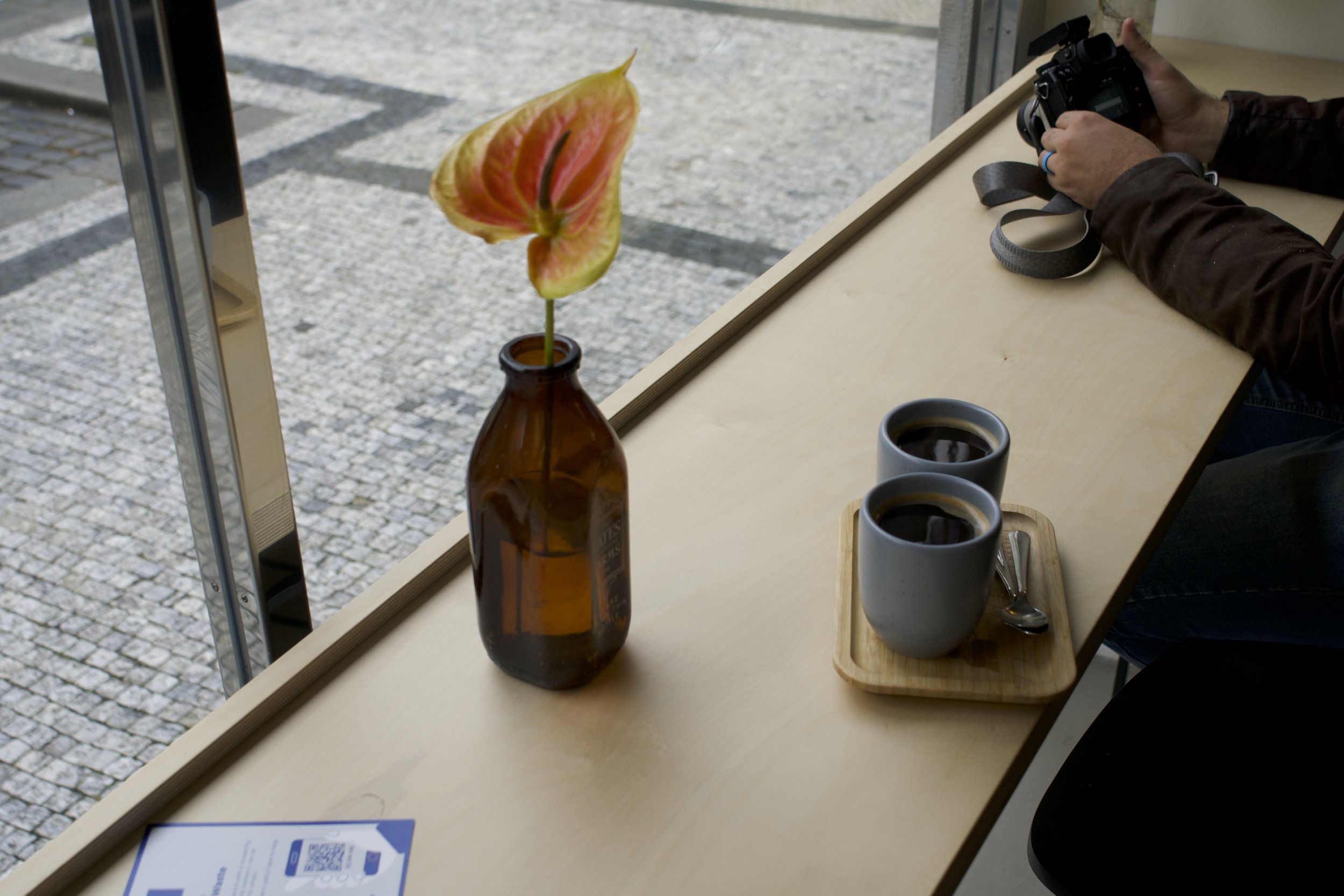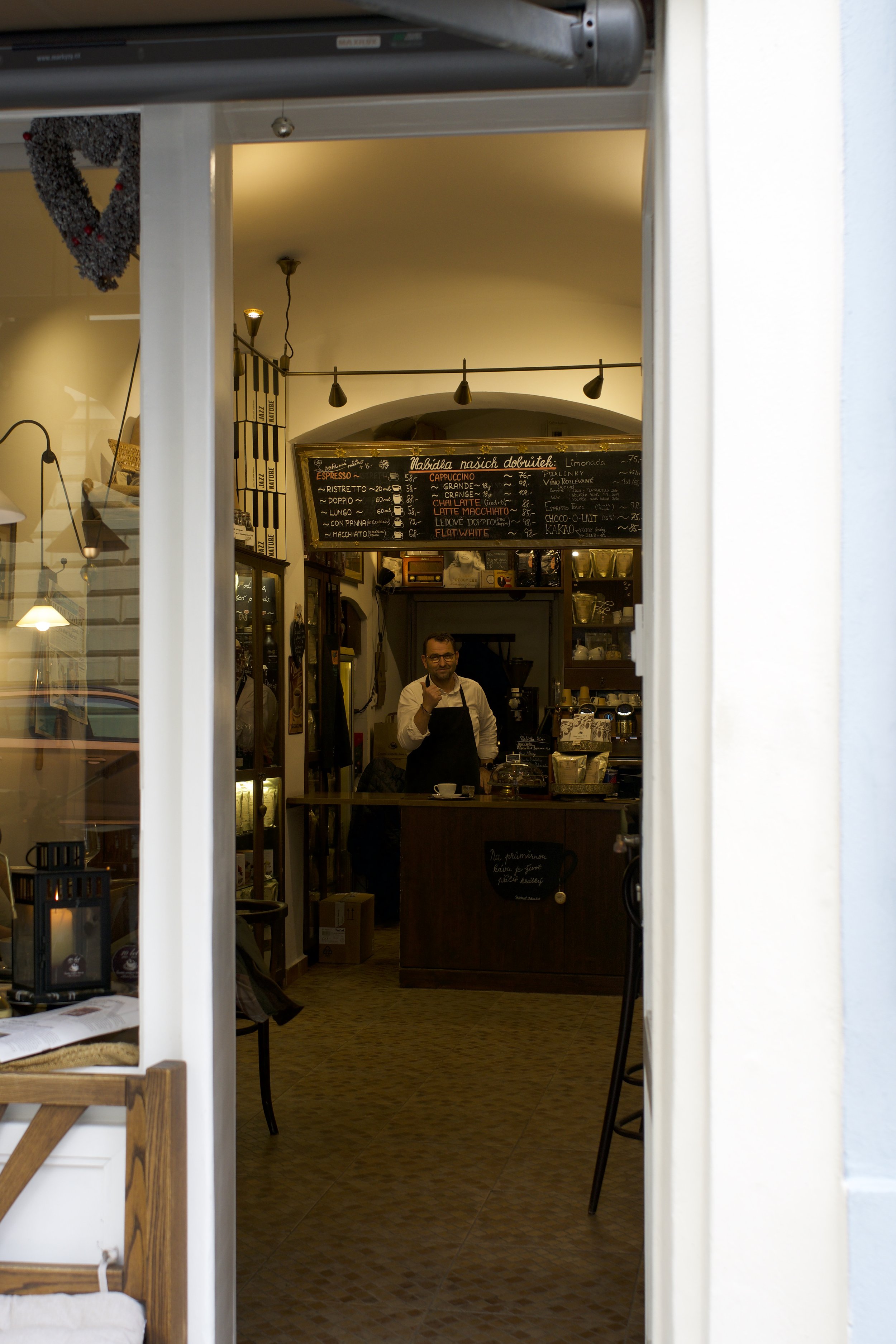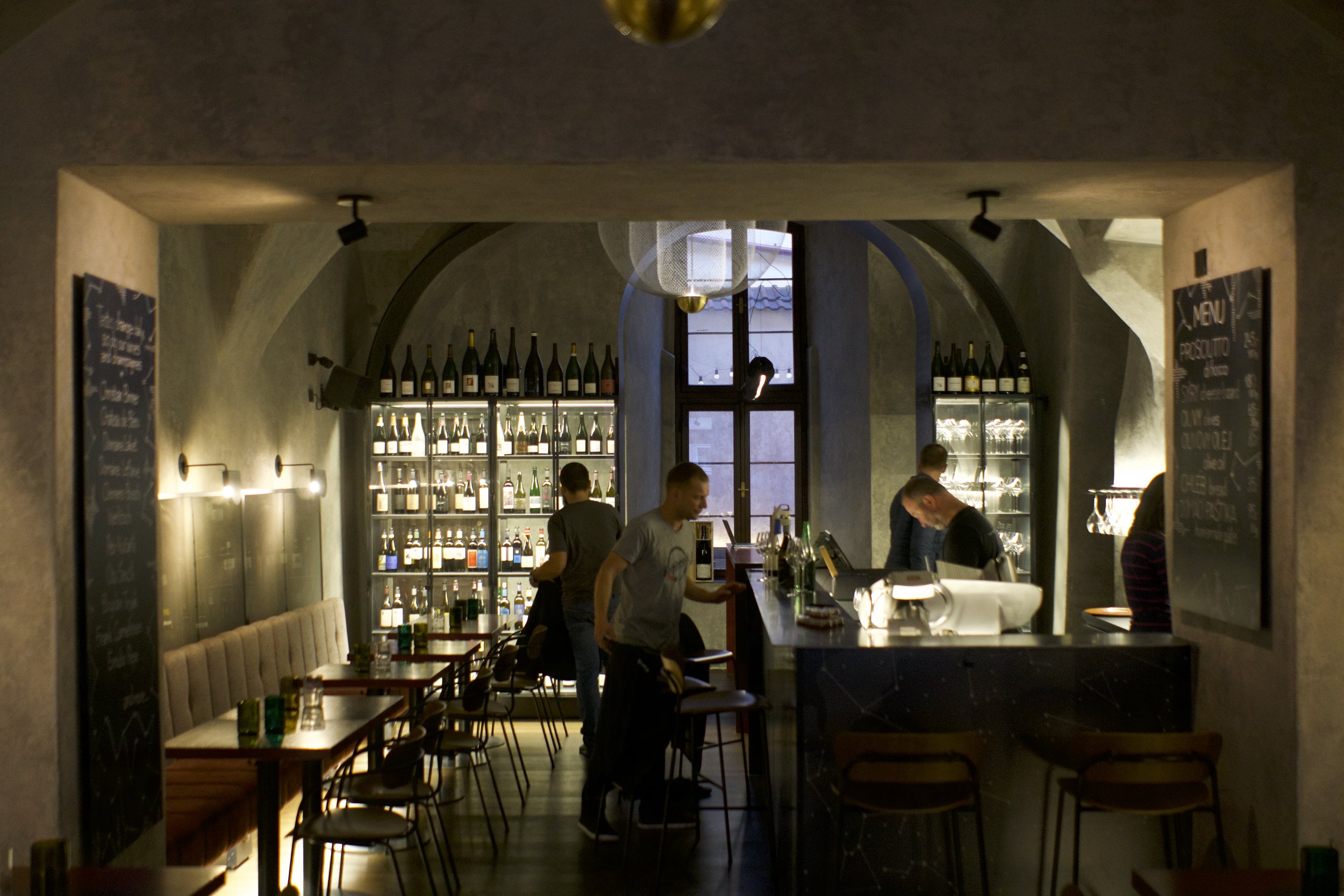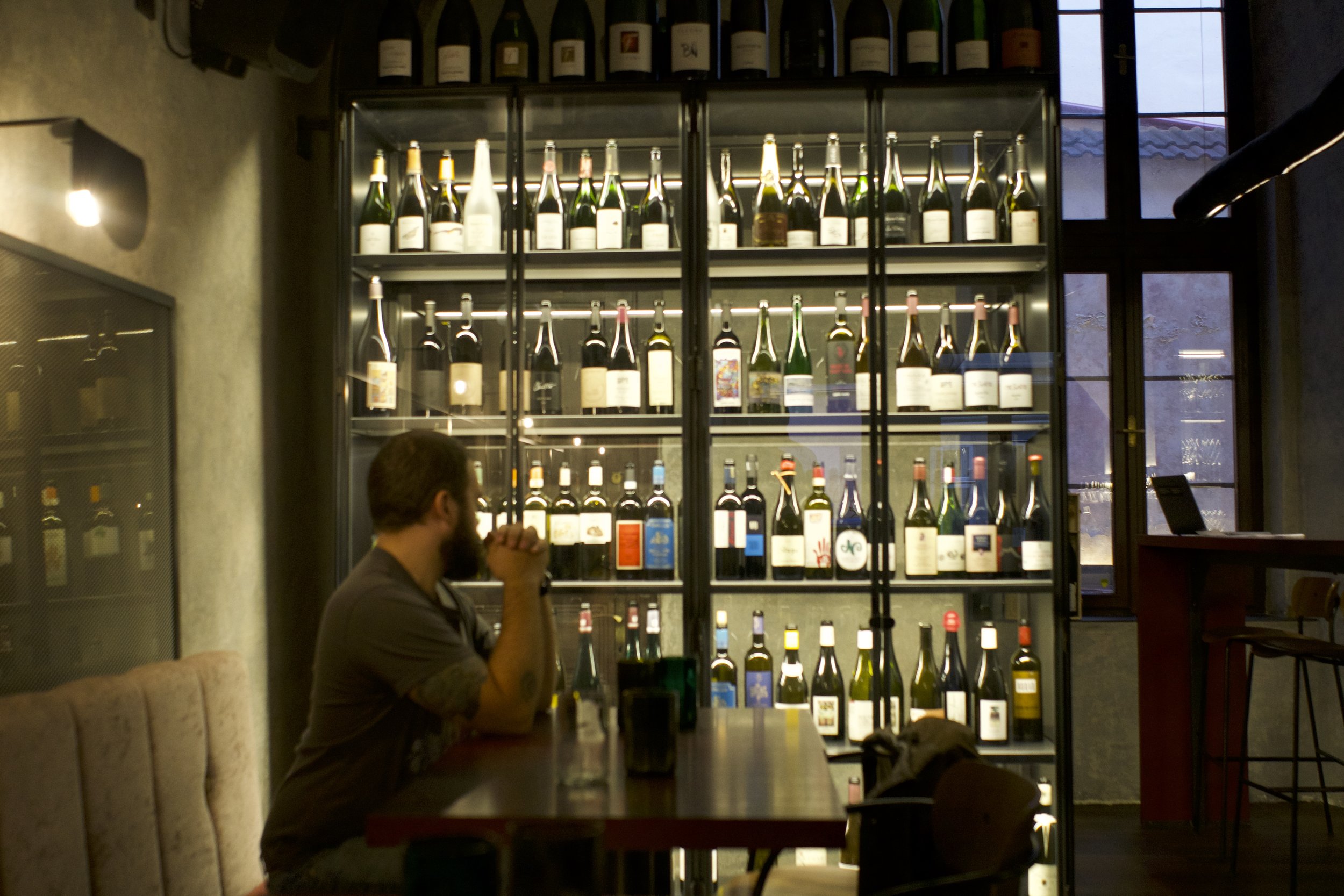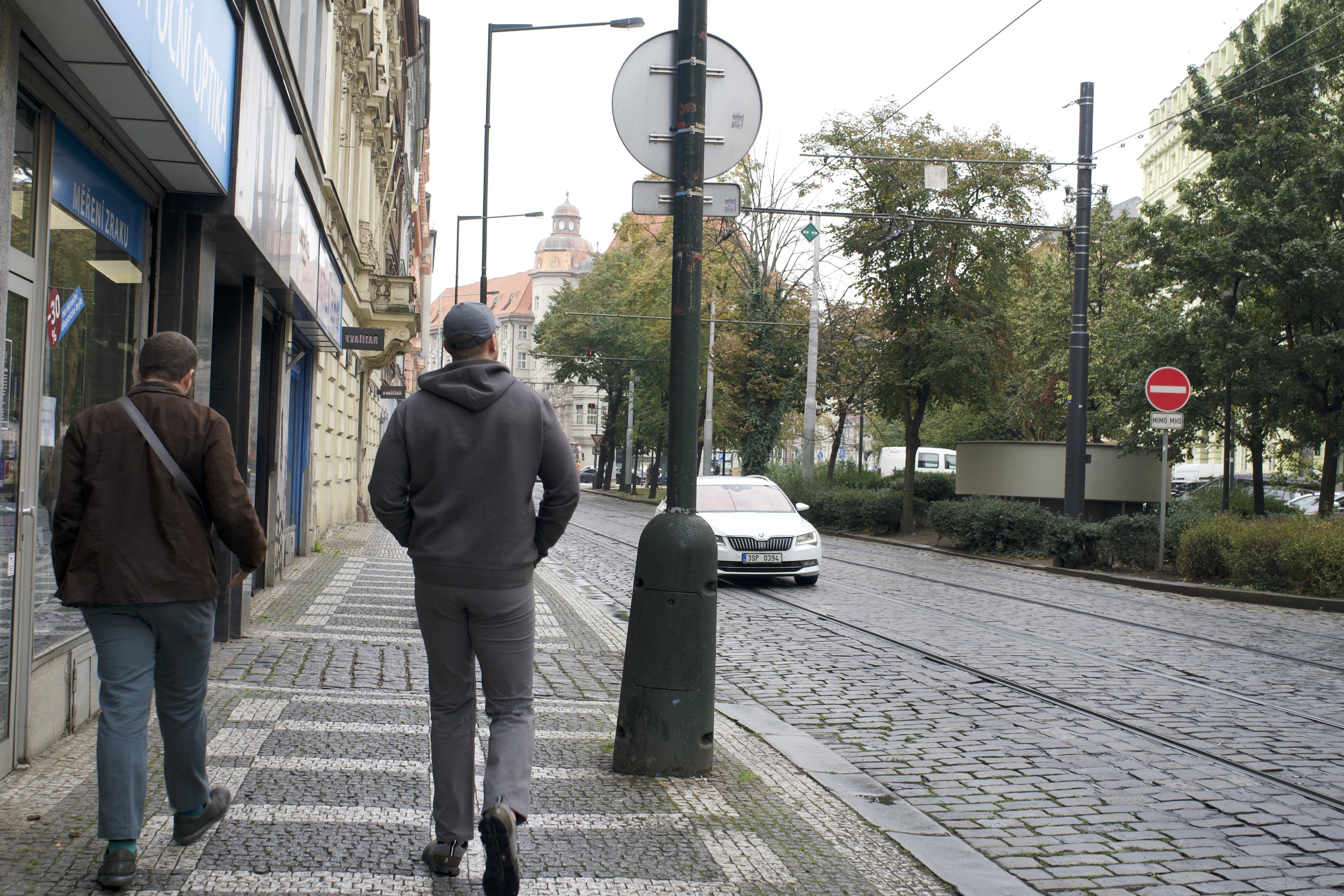Hospitality vs. Entertainment
This piece was written by one of our own, Ty Maloney, as a reflection on his trip to Italy with Marsh Collective teammate, Nelson. Ty reflects on radical, ordinary hospitality, pointing to a revelation he had in Italy of the contrast between hospitality and entertainment. This concept has already served us numerous times while working on both client projects and projects in our own community that strive towards radical, people-centric hospitality. We hope this piece will serve you too.
Author: Ty Maloney | Photos: Josh Marsh
On the flight over, I read a book called "The Gospel Comes With a House Key." John Mark Comer said it was the best book he had ever read on hospitality, so it caught my attention, and I downloaded it for the trip before we left. It was written by Rosaria Butterfield, a former journalist and professor at Syracuse who wrote a strong public piece against the Promise Keeper's movement. The piece caught the attention of a pastor and his wife, who invited Rosaria to dinner. That dinner turned into a series of dinners, which later led to a transformation in her. In the book, she describes the power of radical, ordinary hospitality to transform strangers into friends, friends into neighbors, and neighbors into family.
After experiencing some of the best "hospitality" in the world, I can confidently say that transformational hospitality has two characteristics, neither of which are extraordinary:
1. It carries an intimacy akin to being in the home of someone who deeply cares for you.
2. It embodies a shared experience where both guests and hosts mutually give and receive, fueled by their shared passions and curiosity.
There is a temptation to confuse hospitality with entertainment, and intentionality with the pursuit of counterfeit excellence. As Will Guidara said: "Hospitality and excellence, those two concepts? They're not friends". When hospitality requires what I would describe as "peacocking", hospitality transitions to the realm of entertainment, or worse, an attempted display of opulence, where both guest and host deceive each other in a quest to prove their sophistication.
Hospitality may or may not require excellence, but it does require intentionality and anticipation. As Ash says, it requires "thinking of you before you got here". There is an undeniable element of intentionality in hospitality that can present itself as excellence, but like many other virtues, the line between "for you" and "for me" can be precarious. For hospitality to be present, it requires both the giver and receiver to acknowledge the desire for a shared experience beyond a good meal or a place to stay. It is akin to the difference between a moment and a memory. One is fleeting, the other permanently shapes us. It becomes incarnate, transforming who we are. Distinguishing between hospitality and entertainment is crucial for our community's identity. Rather than viewing our community as a shared space that fosters a sense of belonging, shared passions, and curiosity, it can easily transform into a stage for self-expression and promotion—a canvas demanding perfection that, in turn, fosters imitation and illusion. There is no sense of belonging in an environment that requires perfection. In this way, excellence is certainly the enemy of hospitality. Perfection creates a need for counterfeit excellence where the presentation becomes more important than the engagement. Showing off your feathers is great for entertainment, but let's make sure to call it out for what it is.
I think I can go the rest of my life without eating at a Michelin Star, fine-dining restaurant. In Italy, we visited a three-star restaurant for lunch, supposedly the most prestigious in Italy. It was a four-hour, 12+ course outing. Over the top does not even begin to describe the experience. We had a salad that had over 100 ingredients and took 10 cooks to assemble for a dining room of 25. To their defense, it was the only green thing that I had eaten in weeks, and parts of it were delicious too. As incredible of a feat as that was, the overall experience could not be described as great hospitality, but certainly entertaining. If overwhelming was the goal, they killed it. I think most fine dining has confused hospitality with entertainment. Transforming simple food into art is amazing, but it's entertainment and not hospitality. Creating edible foam from brusselspouts and a replica of modern art with pureed vegetables and squid ink is certainly interesting, but hospitality it is not. Hospitality requires no showmanship. If anything, hospitality should disarm us. It should pull us in, not push us away or make us feel foreign. Food should not come with stereo instructions. If I can't identify what is on my plate and fully appreciate where it came from and how it was prepared, then the flavor better be transcendent; otherwise, what are we doing? By no means am I a connoisseur of fine foods and aesthetics, but I am attuned to discerning motives. You are either trying to impress me or empower me, but you can't do both at the same time. It doesn't take long to determine whether you are grandstanding through a web of complexity or inviting me to play jazz with you. If you are truly confident in your craft, you can even make an off-beat drummer sound amazing. In many of the "Michelin" star establishments we visited, there was no dialogue, no reciprocity, no shared honor, just a show, a show that had no tolerance for an ounce of fallibility. We can admire the show, enjoy it, and maybe even interpret it, but there is no room to fully participate in it. At best, it is a fractured exchange between guest and host that promotes our differences more than it creates a community between us.
In contrast to our more established fine-dining outings, what we experienced at Osteria Delle Aia was thoughtful and caring hospitality that transcended aesthetic grandstanding and mindless consumption. It felt like I was in the proprietor's home, as she treated us that way, even when she did not expect us (there was a mistake with our reservation). In a similar situation where one establishment on our trip sent us packing because they sold the restaurant out to a private party, Delle Aia moved tables literally over the heads of guests and made room for us. The guests acted as if it were normal. The essence of that restaurant is the closest thing I have seen to the hospitality that Ash desires at scale. It is full of passion without pretension, and aesthetically beautiful, but not at a level of excellence that is uninviting.
In our digital era, one of the most admirable attributes is the capacity to be truly present with complexity without succumbing to it—to assimilate substantial information and possess the knowledge to apply it effectively for the benefit of others. Those who can simplify the complex and invite others into it without a hint of pretentiousness possess a unique savant-like quality.
Nelson, with his super-computer mind concealed beneath a veneer of Southern charm, combined with his unbridled wit and those distinctive 'Nebbilo' knuckle tats, earned the admiration of every true lover of food and wine we met. Those knuckle tats acted as a sort of truth serum, almost like a call for authenticity, as if saying, "Will the real players please stand up".
His adeptness at cutting through the pretense in the worlds of food and wine was a refreshing contrast to the excesses often found in some of the places we visited. Without him, the experience would simply not be the same. It would be similar to the experience of buying cold medicine at the Farmacia without a translator, you will get something, but you may be surprised by its potency, and then rely on Google Translate to figure out if you just took the Italian version of Dayquil or Ivermectin. Yes, true story.
The most impactful experience that I had that revealed Nelson's genius was a dinner with our potential import partner. As Nelson began to describe the experiences from our travels, the wines we tasted, and the people behind them, there was no excitement on the other side of the table. Not even a glimmer or flicker of interest. It was almost like staring into the eyes of a lost soul. It was the typical story of an entrepreneur who started a business of passion but then lost himself on the outside. He was nose blind to the opportunities and excitement of matching new producers to new markets. This guy will forget more about wine than I can learn in the time we hope to launch our community, but he found a honey hole and got stuck in it. He had traded mystery for certainty, a preference for those known commodities of Burgundy and Barolo.
I suspected he was nose-blind as soon as he described Delsignore, a winemaker in Gattinara, like a second-class citizen. Nelson described the same winemaker as a genius just three nights prior. It made me wonder who was right. I began to doubt my own experience. I had tasted the wine a few nights before, and really enjoyed it, even while under the influence of some unknown Italian medicinal concoction. The wine was fabulous, maybe to an untrained palate, but fabulous to me nonetheless. Should I doubt my palate because this expert told me I shouldn't like it? I am convinced that this is what happens to the majority of wine drinkers. They settle for a "known commodity" because they do not have a guide to free them from thier cognitive dissonance. They desire to appreciate wine but fall prey to market biases of experts who get stuck on a region, unable to distinguish whether a wine is truly good or simply labeled as such due to the distributor's marketing prowess with little understanding of the vinification skills of the producer. The essence of good lies in what appeals to you, but to discover what is good requires a trusted guide.
Here lies the transformational power of hospitality, possessing the ability to invite others into the enchantment of the craftmanship of food and wine, guiding them through a journey of discovery. It is not a presentation, but an immersive experience. I am convinced the wine was good, and that many would agree with that opinion, but what made the wine fabulous was a memory. The first time I had the wine was in the presence of the winemaker himself in the home of someone who cared for me enough to cook an authentic Piemontese dinner that accommodated the wine. I had a translator too, one who did not need comps or tasting notes, he just wanted to share the jewel he found in an obscure region of Piedmont. That shared joy is the authenticity that has the power to transform a moment into a memory. A moment can create a few sales, and memories create lifetime customers. The role of the guest should not be excluded from this conversation of shared experiences. I learned to be a better guest on this trip. I have to be prepared and expectant to co-create amazing experiences. As mentioned earlier, for hospitality to exist, there has to be reciprocity between the host and guest, and it must extend beyond a mere economic transaction. Nelson learned the art of this from his Mom.
During our wine-tasting journey, a wine-maker took the opportunity to correct my glass-holding technique in a remote location we had traveled hours to reach. His correction was delivered kindly but firmly, with a gentle excuse for my perceived American habit. Initially, I felt a bit surprised, as if I were entitled to drink the wine however I pleased, especially as the guest expressing interest in purchasing his wine. It took a moment for me to catch that there is a sense of honor in the way one holds a glass and that I played a role in this intricate orchestra. I was there not only to receive but also to actively participate in his craft, contributing to his experience of sharing and not selling.
He explained a specific method for holding the stem, emphasizing its safety. As someone not particularly graceful (you should see me try to eat with chopsticks in a nice Asian place in Milan), I realized he had potentially saved me from future embarrassment. More significantly, he took me to a higher level of understanding. He gave me a lesson on how to honor him as the creator of the wine. While I could convey my appreciation verbally, the way I held the glass, savored the aroma and engaged in his tasting process communicated and meant much more. This is what active participation looks like, but I had to be invited into it.
Closing out this reflection, I hold the conviction that there is a unique spirit behind true hospitality, one that believers, those who walk in the abiding presence of Jesus, are distinctly positioned to embrace. My belief extends to the notion that God values hospitality, viewing it as an expression of love. However, I propose that it's not a pursuit of the extraordinary that captures His interest; rather, He is more inclined towards a form of radical, ordinary hospitality, a pursuit of the heart more than stimulation of the senses.
I believe strongly that we will have to make a decision, and a concerted effort, to be in the hospitality business over the entertainment business. Do we want to impress or do we want to empower? Movements are not created by just making impressions, movements are made by winning hearts.
Winning hearts involves creating spaces where individuals feel a sense of belonging, intimate environments meticulously curated with intention rather than self-expression. Spaces built for engagement more than admiration.
It's where passion and curiosity are mutual, and where mistakes and interruptions transform into invitations, and preferences become a lens through which to understand one another more fully. In such an environment, people of all kinds can embark on journeys of discovery, fostering new experiences that shape both the guest and the host.

